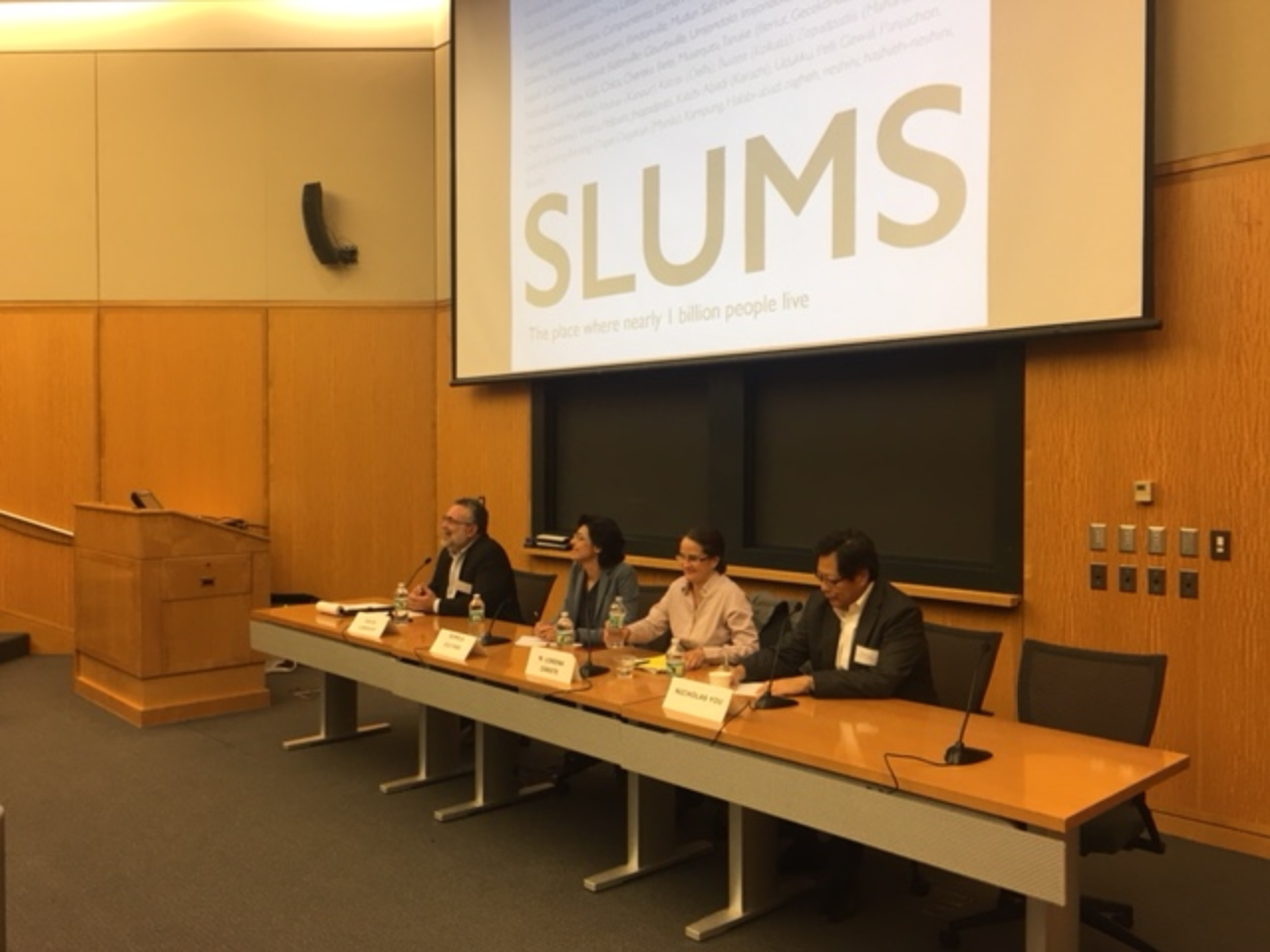Nicholas You shares innovative slum initiatives at Harvard symposium

Mr. Nicholas You, Executive Director of Guangzhou Institute for Urban Innovation, shared lessons from the Guangzhou Award system regarding the issue of slums at the symposium “Slums: New Visions for an Enduring Global Phenomenon”, held in Boston, United States from September 20-22.
You cited the story of Kampong Glingtung in Malang, Indonesia among others. Kampong Glingtung has become a national example of how an upgrading project focusing on water management and flood prevention has become a showcase for sustainable green business and local economic development. The initiative started off with the local community working as volunteers to improve flood prevention and water conservation infrastructure. The retained water is now used, together with neighbourhood compost production, to produce organic green vegetables. This local production provides a source of healthy food for the inhabitants of the kampong and the inhabitants of the kampong have become major purveyors of green vegetables to the marketplace.
This holistic approach to social, economic and environmental has inspired other Kampongs to search for and implement their own original ideas for local economic development. A notable case is a kampong in the Brantas watershed area which, with the help of local university students, merits the title for the most colourful and artful kampong attracting tourists from near and afar.
These examples, and other slum upgrading initiatives that have been recognized by the Guangzhou Award, are showing a distinct trend in approaching several Global Goals simultaneously. In both the above cases from East Java, we are seeing a combined approach to no poverty (SDG1), water and sanitation (SDG 6), decent work and economic growth (SDG 8) and sustainable cities and communities (SDG11).
The 3-day symposium was organized by Lincoln Institute of Land Policy, Harvard Joint Center for Housing Studies, and Harvard Graduate School of Design. It sought to advance new policy, financial, design, and educational tools that can both improve existing slums and generate alternatives to future ones.


 In Focus | World Cities Day: People-Centred Smart Cities
In Focus | World Cities Day: People-Centred Smart Cities City Stories | Fostering community resilience: A lifeline for the Central African Republic
City Stories | Fostering community resilience: A lifeline for the Central African Republic In Focus | Innovative Education, Empowering Futures
In Focus | Innovative Education, Empowering Futures




















 Tel: +86 020 3780 4434
Tel: +86 020 3780 4434 Email: info@guangzhouaward.org
Email: info@guangzhouaward.org Address: Unit 01-7, 28th Floor, No. 7, Chunrong 3rd Road, Tianhe District, Guangzhou, Guangdong, 510000, PRC
Address: Unit 01-7, 28th Floor, No. 7, Chunrong 3rd Road, Tianhe District, Guangzhou, Guangdong, 510000, PRC




